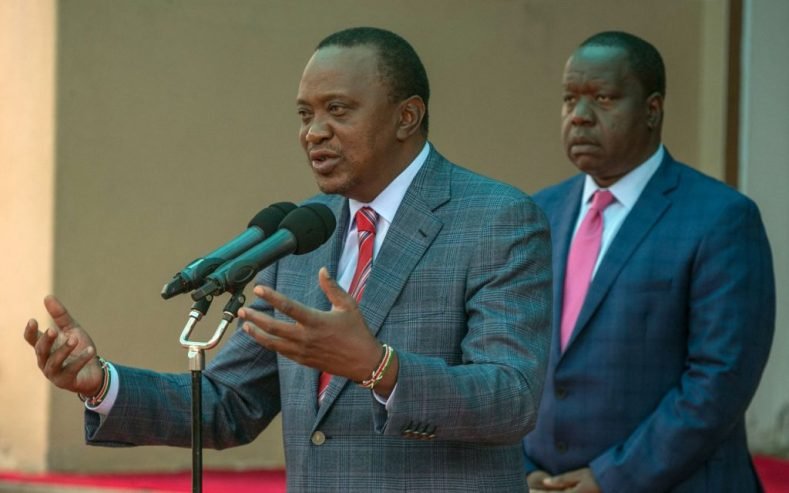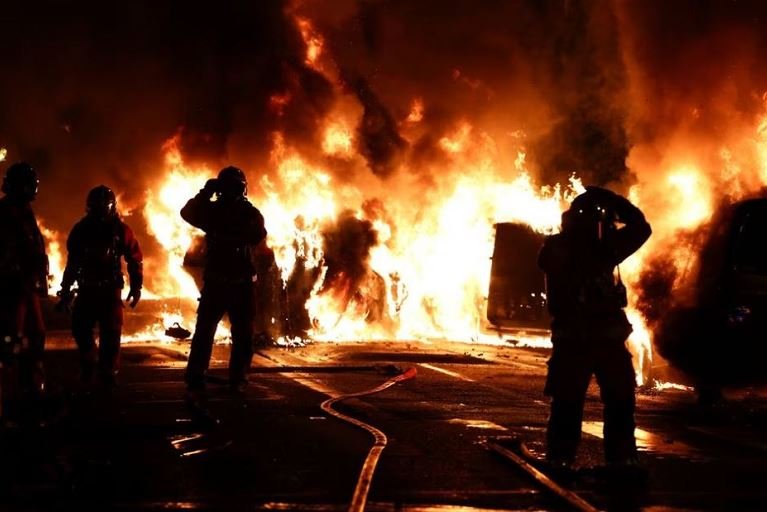
Kenyan authorities shut down TV stations to prevent live coverage of a swearing-in event by opposition leader Raila Odinga, who boycotted last year’s disputed presidential election.
He declared himself the “people’s president” in front of thousands of his supporters in the capital, Nairobi.
The result of the August general election was annulled following allegations of irregularities.
Uhuru Kenyatta won a re-run in October, but Mr Odinga did not take part.
President Kenyatta was sworn in for a second term last November.
He warned the media not to cover Tuesday’s event and the attorney general said holding such a ceremony amounted to treason.
However, the main TV stations streamed the event on their websites and on YouTube and Facebook.
READ: Police says ban on rallies, procession in Kaduna continues – Police
Holding a bible in his right hand at a park in Nairobi, Mr Odinga declared that he was answering to a “high[er] calling to assume the office of the people’s president of the Republic of Kenya”.
People had had enough of election rigging and the event was a step towards establishing a proper democracy in the East African state, Mr Odinga told a cheering crowd.
His deputy, Kalonzo Musyoka was not at the event. Mr Odinga said he would be sworn in at a later date.

Speaking earlier to Kenyan broadcaster KTN, Mr Odinga said the media ban “confirms we have descended to the level of Uganda”, which stopped media coverage during elections in 2016.
His “swearing-in” was intended to “show the world that what we are doing is legal, constitutional and not something you can remotely describe as a coup”, he added.
Three privately owned television stations – NTV, KTN and Citizen TV – went off air from around 09:10 (06:10 GMT), BBC Monitoring reports.
Citizen TV told the BBC the government authorities had forced them off the air over plans to cover the gathering.
KTN viewers watched their screens fade to black as the news presenter read a statement confirming that the national communications authority was switching off transmission.
Switching off the broadcasting signals of media organisations is unusual in Kenya, the BBC’s Anne Soy reports from Nairobi.
Threats have been made in the past and some media groups have been raided but none have had their signal deliberately disrupted, our correspondent says.
Kenyan journalists have denounced the move as outrageous, in a statement calling for “respect of the constitution” and an end to the “unprecedented intimidation of journalists”.
There was tension in Kenya on Tuesday as some schools closed in the Kenyan capital because of the event, and people did not know what to expect, our correspondent says.
Police initially cordoned off the park, but then withdrew, she adds.











